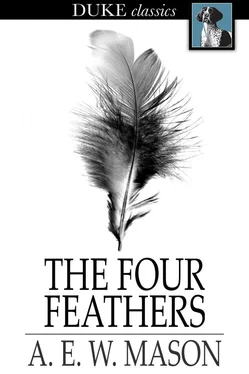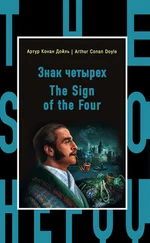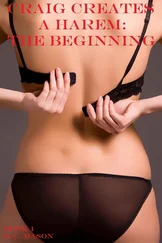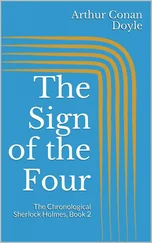A. Mason - The Four Feathers
Здесь есть возможность читать онлайн «A. Mason - The Four Feathers» весь текст электронной книги совершенно бесплатно (целиком полную версию без сокращений). В некоторых случаях можно слушать аудио, скачать через торрент в формате fb2 и присутствует краткое содержание. Жанр: Исторические приключения, на английском языке. Описание произведения, (предисловие) а так же отзывы посетителей доступны на портале библиотеки ЛибКат.
- Название:The Four Feathers
- Автор:
- Жанр:
- Год:неизвестен
- ISBN:нет данных
- Рейтинг книги:5 / 5. Голосов: 1
-
Избранное:Добавить в избранное
- Отзывы:
-
Ваша оценка:
- 100
- 1
- 2
- 3
- 4
- 5
The Four Feathers: краткое содержание, описание и аннотация
Предлагаем к чтению аннотацию, описание, краткое содержание или предисловие (зависит от того, что написал сам автор книги «The Four Feathers»). Если вы не нашли необходимую информацию о книге — напишите в комментариях, мы постараемся отыскать её.
The Four Feathers — читать онлайн бесплатно полную книгу (весь текст) целиком
Ниже представлен текст книги, разбитый по страницам. Система сохранения места последней прочитанной страницы, позволяет с удобством читать онлайн бесплатно книгу «The Four Feathers», без необходимости каждый раз заново искать на чём Вы остановились. Поставьте закладку, и сможете в любой момент перейти на страницу, на которой закончили чтение.
Интервал:
Закладка:
From the parade ground of Wellington Barracks the drums and fifes sounding the tattoo shrilled through the open window with a startling clearness like a sharp summons, and diminished as the band marched away across the gravel and again grew loud. Feversham did not change his attitude, but the look upon his face was now that of a man listening, and listening thoughtfully, just as he had read thoughtfully. In the years which followed, that moment was to recur again and again to the recollection of each of Harry's three guests. The lighted room, with the bright homely fire, the open window overlooking the myriad lamps of London, Harry Feversham seated with the telegram spread before him, the drums and fifes calling loudly, and then dwindling to music very small and pretty-music which beckoned where a moment ago it had commanded: all these details made up a picture of which the colours were not to fade by any lapse of time, although its significance was not apprehended now.
It was remembered that Feversham rose abruptly from his chair, just before the tattoo ceased. He crumpled the telegram loosely in his hands, tossed it into the fire, and then, leaning his back against the chimney-piece and upon one side of the fireplace, said again: "I don't know;" as though he had thrust that message, whatever it might be, from his mind, and was summing up in this indefinite way the argument which had gone before. Thus that long silence was broken, and a spell was lifted. But the fire took hold upon the telegram and shook it, so that it moved like a thing alive and in pain. It twisted, and part of it unrolled, and for a second lay open and smooth of creases, lit up by the flame and as yet untouched; so that two or three words sprang, as it were, out of a yellow glare of fire and were legible. Then the flame seized upon that smooth part too, and in a moment shrivelled it into black tatters. But Captain Trench was all this while staring into the fire.
"You return to Dublin, I suppose?" said Durrance. He had moved back again into the room. Like his companions, he was conscious of an unexplained relief.
"To Dublin? No; I go to Donegal in three weeks' time. There is to be a dance. It is hoped you will come."
"I am not sure that I can manage it. There is just a chance, I believe, should trouble come in the East, that I may go out on the staff." The talk thus came round again to the chances of peace and war, and held in that quarter till the boom of the Westminster clock told that the hour was eleven. Captain Trench rose from his seat on the last stroke; Willoughby and Durrance followed his example.
"I shall see you to-morrow," said Durrance to Feversham.
"As usual," replied Harry; and his three guests descended from his rooms and walked across the Park together. At the corner of Pall Mall, however, they parted company, Durrance mounting St. James's Street, while Trench and Willoughby crossed the road into St. James's Square. There Trench slipped his arm through Willoughby's, to Willoughby's surprise, for Trench was an undemonstrative man.
"You know Castleton's address?" he asked.
"Albemarle Street," Willoughby answered, and added the number.
"He leaves Euston at twelve o'clock. It is now ten minutes past eleven. Are you curious, Willoughby? I confess to curiosity. I am an inquisitive methodical person, and when a man gets a telegram bidding him tell Trench something and he tells Trench nothing, I am curious as a philosopher to know what that something is! Castleton is the only other officer of our regiment in London. It is likely, therefore, that the telegram came from Castleton. Castleton, too, was dining with a big man from the War Office. I think that if we take a hansom to Albemarle Street, we shall just catch Castleton upon his door-step."
Mr. Willoughby, who understood very little of Trench's meaning, nevertheless cordially agreed to the proposal.
"I think it would be prudent," said he, and he hailed a passing cab. A moment later the two men were driving to Albemarle Street.
Chapter III — The Last Ride Together
Durrance, meanwhile, walked to his lodging alone, remembering a day, now two years since, when by a curious whim of old Dermod Eustace he had been fetched against his will to the house by the Lennon River in Donegal, and there, to his surprise, had been made acquainted with Dermod's daughter Ethne. For she surprised all who had first held speech with the father. Durrance had stayed for a night in the house, and through that evening she had played upon her violin, seated with her back toward her audience, as was her custom when she played, lest a look or a gesture should interrupt the concentration of her thoughts. The melodies which she had played rang in his ears now. For the girl possessed the gift of music, and the strings of her violin spoke to the questions of her bow. There was in particular an overture-the Melusine overture-which had the very sob of the waves. Durrance had listened wondering, for the violin had spoken to him of many things of which the girl who played it could know nothing. It had spoken of long perilous journeys and the faces of strange countries; of the silver way across moonlit seas; of the beckoning voices from the under edges of the desert. It had taken a deeper, a more mysterious tone. It had told of great joys, quite unattainable, and of great griefs too, eternal, and with a sort of nobility by reason of their greatness; and of many unformulated longings beyond the reach of words; but with never a single note of mere complaint. So it had seemed to Durrance that night as he had sat listening while Ethne's face was turned away. So it seemed to him now when he knew that her face was still to be turned away for all his days. He had drawn a thought from her playing which he was at some pains to keep definite in his mind. The true music cannot complain.
Therefore it was that as he rode the next morning into the Row his blue eyes looked out upon the world from his bronzed face with not a jot less of his usual friendliness. He waited at half-past nine by the clump of lilacs and laburnums at the end of the sand, but Harry Feversham did not join him that morning, nor indeed for the next three weeks. Ever since the two men had graduated from Oxford it had been their custom to meet at this spot and hour, when both chanced to be in town, and Durrance was puzzled. It seemed to him that he had lost his friend as well.
Meanwhile, however, the rumours of war grew to a certainty; and when at last Feversham kept the tryst, Durrance had news.
"I told you luck might look my way. Well, she has. I go out to Egypt on General Graham's staff. There's talk we may run down the Red Sea to Suakin afterward."
The exhilaration of his voice brought an unmistakable envy into Feversham's eyes. It seemed strange to Durrance, even at that moment of his good luck, that Harry Feversham should envy him-strange and rather pleasant. But he interpreted the envy in the light of his own ambitions.
"It is rough on you," he said sympathetically, "that your regiment has to stay behind."
Feversham rode by his friend's side in silence. Then, as they came to the chairs beneath the trees, he said: "That was expected. The day you dined with me I sent in my papers."
"That night?" said Durrance, turning in his saddle. "After we had gone?"
"Yes," said Feversham, accepting the correction. He wondered whether it had been intended. But Durrance rode silently forward. Again Harry Feversham was conscious of a reproach in his friend's silence, and again he was wrong. For Durrance suddenly spoke heartily, and with a laugh.
"I remember. You gave us your reasons that night. But for the life of me I can't help wishing that we had been going out together. When do you leave for Ireland?"
"To-night."
"So soon?"
They turned their horses and rode westward again down the alley of trees. The morning was still fresh. The limes and chestnuts had lost nothing of their early green, and since the May was late that year, its blossoms still hung delicately white like snow upon the branches and shone red against the dark rhododendrons. The park shimmered in a haze of sunlight, and the distant roar of the streets was as the tumbling of river water.
Читать дальшеИнтервал:
Закладка:
Похожие книги на «The Four Feathers»
Представляем Вашему вниманию похожие книги на «The Four Feathers» списком для выбора. Мы отобрали схожую по названию и смыслу литературу в надежде предоставить читателям больше вариантов отыскать новые, интересные, ещё непрочитанные произведения.
Обсуждение, отзывы о книге «The Four Feathers» и просто собственные мнения читателей. Оставьте ваши комментарии, напишите, что Вы думаете о произведении, его смысле или главных героях. Укажите что конкретно понравилось, а что нет, и почему Вы так считаете.











